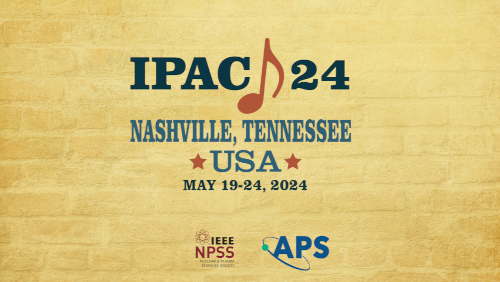Speaker
Description
We present a novel method for minimizing the effects of radiative depolarization in electron storage rings by use of vertical orbit bumps in the arcs. Electron polarization is directly characterized by the RMS of the so-called spin orbit coupling function in the bends. In the Electron Storage Ring (ESR) of the Electron-Ion Collider (EIC), as was the case in HERA, this function is excited by the spin rotators. Individual vertical orbit bumps in the arcs can have varying impacts on this function globally. In this method, we use a singular value decomposition of the response matrix of the spin-orbit coupling function with each orbit bump to define a minimal number of most effective groups of bumps, motivating the name “Best Adjustment Groups for ELectron Spin” (BAGELS) method. These groups can then be used to minimize the depolarizing effects in an ideal lattice, and to restore the minimization in rings with realistic closed orbit distortions. Furthermore, BAGELS can be used to construct groups for other applications where a minimal impact on polarization is desirable, e.g. global coupling compensation or vertical emittance creation. Application of the BAGELS method has significantly increased the polarization in simulations of the 18 GeV ESR, beyond achievable with conventional methods.
Funding Agency
Work supported by Brookhaven Science Associates, LLC under Contract No. DE-SC0012704 with the U.S. Department of Energy, and No. DE-SC0018008.
| Region represented | North America |
|---|---|
| Paper preparation format | LaTeX |

